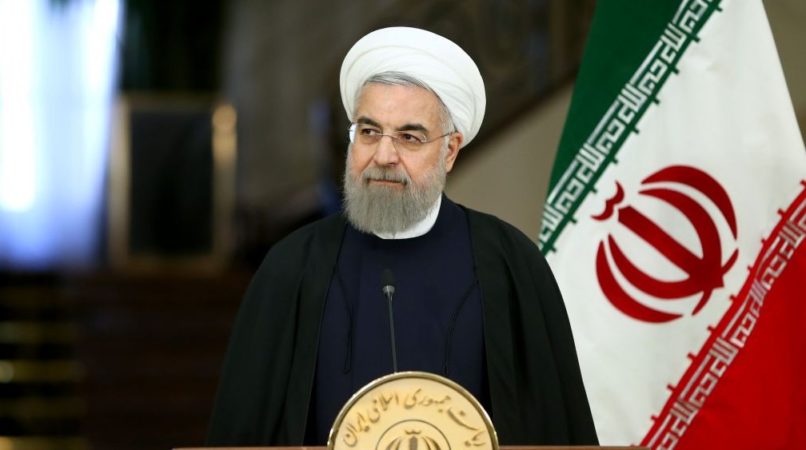Iran is about to launch its Rial digital currency, which is being developed by the Informatics Services Corporation. According to the agency’s CEO, Seyyed Abotaleb Najafi, the coin will support Iran’s fiat.
As things stand, the Western Asian nation has been blocked from the Society for Worldwide Interbank Financial Telecommunication (SWIFT) monetary system and is currently in a race to find a solution to its global financial network connectivity issues. This is following a flurry of sanctions by the United States government targeting its financial institutions and trading networks.
Right now, embracing cryptocurrencies seems to be a viable way to circumvent the imposed sanctions. The latest round of sanctions was enacted on November 5 through the U.S. Department of the Treasury’s Office of Foreign Assets Control (OFAC) and targeted over 700 Iranian citizens, companies, aircraft and vessels.
The sanctions are related to the nation’s nuclear activities and many had previously been outlined under the Joint Comprehensive Plan of Action (JCPOA). The plan was designed to force the country into abandoning its nuclear and ballistic missile programs and impede the regime’s ability to fund countermeasure activities.
According to a statement issued by Treasury Secretary Steven Mnuchin, maximum pressure is going to be exerted to prevent the Iranian regime from shifting currency reserves into unreachable overseas investment markets.
The Development of a National Digital Currency
Iran is said to be hastening the launch of its national cryptocurrency, backed by its national currency, the Rial. According to Ibena, a local news source, the digital coin is being developed by the Informatics Services Corporation at the request of the country’s Central Bank. The digital currency will apparently be distributed by the Central bank on a one-to-one framework.
The system is reportedly in its pilot stage and testing is taking place to evaluate its capacity to connect banks and retail financial institutions. According to Informatics Services Corporation CEO, Seyyed Abotaleb Najafi, the digital coins will directly support the country’s fiat currency. Liquidity will be limited by blocking each digital unit upon receiving its fiat equivalent, thereby creating less of it.
He also highlighted that the country’s banking system is still in need of a major overhaul and can’t facilitate the smooth adaptation of the digital platform in its current state.
Venezuela’s National Crypto Case
Venezuela has one of the most troubled economies in the world and like Iran; it has faced a wave of sanctions imposed by the United States. The isolationist policies are aimed at undermining President Nicolás Maduro’s government, which has been accused of furthering corruption and repression. Like Iran, Venezuela also has significant oil reserves, which makes it a unique case study on the use of cryptocurrencies to circumvent sanctions.
So far, its national cryptocurrency dubbed Petro has been a flop. Initially touted as the cornerstone of an elaborate inflation recovery-plan aimed at getting the country out of the depths of poverty, the effects are yet to be felt. According to a Reuters investigation, few ordinary citizens in the country claim to have come across the Petro digital currency.
For four months, the research team searched for traces of the digital currency without success. Findings indicated that there were no shops or crypto-exchange platforms that trade in the Petro digital currency.
Government officials have also given conflicting accounts about the state of the coin. Some highlight its growing use citing billions of dollars worth of trades mainly involving imports and exports. However, according to Hugbel Roa, a minister who has been involved in the project, the platform is still in its development stage and so the coin has never really been used.
The agency that was assigned to oversee the project – The Superintendence of Crypto Assets is supposedly a mystery and its existence a myth. This situation highlights the difficulties of launching a national cryptocurrency that replaces fiat. There is a likelihood that Iran may successfully launch its cryptocurrency, but making it a success as evidenced by Venezuela’s attempt will be a Herculean task.
Image Credit:AP/Ebrahim Noroozi
[thrive_leads id=’5219′]
Never Miss Another Opportunity! Get hand selected news & info from our Crypto Experts so you can make educated, informed decisions that directly affect your crypto profits. Subscribe to CoinCentral free newsletter now.










